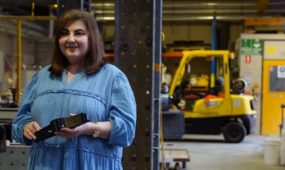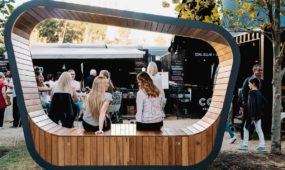Championing the cause of a small city
Innovation
INCREASINGLY cities nationally and globally are seeking to position themselves more strongly in the international marketplace and working in collaboration with industry to increase market share in key sectors and attract new inbound investment opportunities.

Sign up to receive notifications about new stories in this category.
Thank you for subscribing to story notifications.
In South Australia, businesses are working together to lure new players to the City of Adelaide and champion the cause of an economy seeking to change direction.
organisationSKYCITYWaterhouse
Funded through membership fees, the Committee is preparing to hire a full-time CEO in a bid to help fast track its expansion.
Committee for Adelaide General Manager Matt Clemow said there was an important role for industry to contribute to economic growth and foster positive change.
“It is a group of South Australian businesses taking responsibility for their role in the broader scheme of things and playing a part in driving economic growth,” he said.
“It’s very much a mentality of let’s grow the pie and then compete for it but if we sit and work against each other then we are going to compete for a diminishing pie.
“One of the great things about South Australia is that most people want it to succeed and if we can succeed in driving more economic growth then it’s a better place for us to do business.
“Growth creates opportunities.”
The decline of the manufacturing and mining sectors in South Australia is forcing a major shift of economic focus in the state towards high value and knowledge industries such as health, education, and Smart City technologies.
“The Committee for Adelaide is making a positive impact on the growth of Adelaide city, particularly in identifying new investment and industry sector opportunities and assisting government to target them,” said Patrick Robinson from Invest Adelaide.
Clemow said the recent launch of Investment Attraction South Australia as the lead agency of Government to look for opportunities to bring investors to the state is a strong and positive move towards driving growth. Likewise, the Adelaide City Council’s investment unit, Invest Adelaide, which nurtures CBD investment opportunities.
“Then when they bring people here to have a look, we will put business people around them to give them an idea of what the opportunities are,” he said.
“We also operate a business attraction priority group and that group is solely focused at business attracting other businesses here. So it’s not for businesses to say to government ‘go get more people so we have more work’ but it’s how can we say South Australia is a pretty safe market at the moment and you will get growth so why not invest here and do those things rather than rely on government to do that’.”
The organisation has six working groups – business attraction, business migration, the migration and population debate, innovation, city growth and education – that meet 11 times a year and report back to the 13-member board.
“What we’ve tried to do is focus on areas that at their core drive economic activity and are difficult policy areas for government,” Clemow said.
“Some of the Committee’s early work was driven through engaging with members and seek comment on broader industry issues and reports however we’ve become more focused on individual issues over time – if there’s something to be said then we’ll say it in a constructive way.”
The committee is currently focusing on the Nuclear Fuel Cycle Royal Commission, which this month released its initial findings in Adelaide that showed a nuclear waste disposal facility in the South Australian outback would be viable and highly profitable.
It will lead a 12-day business delegation of eight business leaders and two state politicians to Finland, France and the United Kingdom in late April to visit sites and gain a greater understanding of the nuclear industry, the issues involved and the potential role South Australia could play in the future.
“Those industry leaders can then come back and be part of the conversation about what they saw and what they thought about it. Our role is, we feel that we can’t ask governments to do this all on their own, if industry has a role in the future of the state economy … industry needs to play a part of looking at the opportunities and the challenges and being part of the debate,” Clemow said.
Jump to next article



